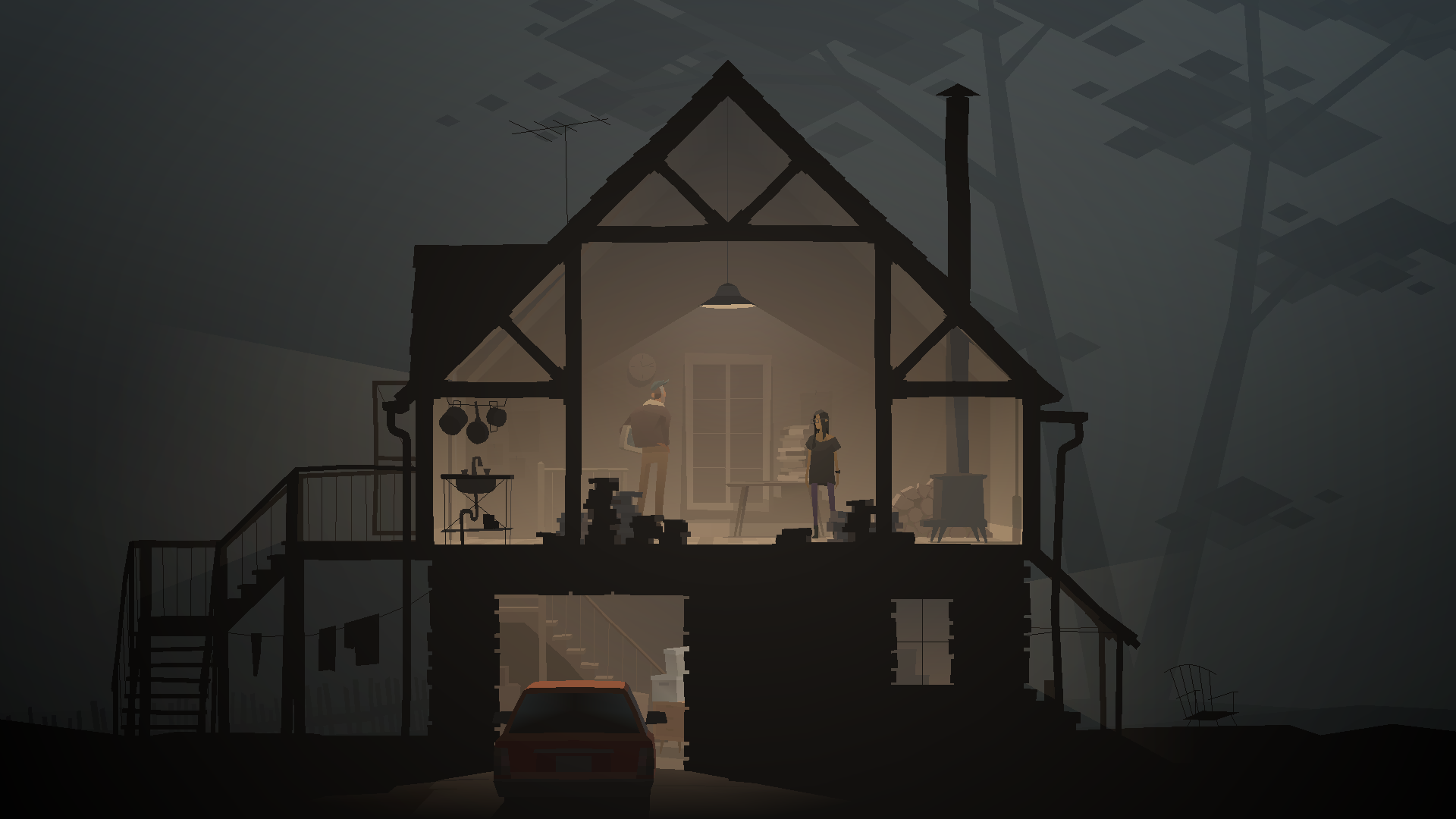When I need to tamp down my intrusive thoughts, I usually browse the Steam store. There are at least three separate ways to filter and categorize on Steam, and using any of them is a Sisyphean chore. Clicking into the “Mystery & Detective” theme produces a glut of horror games and puzzle box murders. I try applying the “Mystery” subgenre to visual novels instead, but that’s equally unsatisfying—Digimon Survive, Escape Academy, Ace Attorney.
For once in my life, JRPGs and procedural dramas aren’t going to cut it. I used them as an undergraduate pick-me-up, a way to mimic the sensation of knowledge and progress. My grandpa’s passing has rattled that satisfaction loose. I can’t stand the friction; a series of logical deductions won’t solve the perfect storm of chronic health issues, a global pandemic, and bad timing that sent Pop to the hospital. Steam user tags categorize that kind of experience as “atmospheric.”
As Pop’s eyesight deteriorated, the television in the living room grew. An equal and opposite reaction. Larger size meant more bells and whistles to justify the price tag, which meant more buttons on the remote, which meant more attempts at tech support whenever we visited. The factory defaults weren’t really built for someone who had to stand close to it. Motion smoothing was always on, the nested menus were a snarl of app icons, navigation arrows and (to Pop, at least) indecipherable text. He didn’t know he was opting into this; he just wanted a screen he could see.
Internet curation tools initially promised that we’d never have to sort through anything dull or uninteresting. The algorithm would learn based on the opinions of real people, and deliver more accurate, more personalized results directly to us. As always, money ruined that idea. There is no elegant content pipeline; instead there are fifteen separate funnels hastily bundled together. More apps are added to the remote and the cost is paid. The arrows and menu buttons can always shrink.
Pop loved musicals, Adele, and sci-fi. Ironically, one of my last crystal-clear memories with him is my attempt to explain Arrival: how time loops into itself, not predestination but something stranger. Even then, I couldn’t resist the urge to rationalize. I had that same puzzle-box abrasion— struggling to conjure answers where there are none, gathering enough pieces to duct-tape a coherent whole.
Pop was whip-smart, sharp enough to sit with those thoughts for a few days instead of listening to me muddle through them. It’s a small tribute, but now I seek out every little pocket of strangeness I can find—Kentucky Route Zero‘s tangled maps and dialogue trees, Immortality’s layers and layers of film magic, the cryptic cyber-noir of The Silver Case. They don’t expect a concrete answer, as long as I keep grappling with the questions.

Comments
One response to “Killing the Mystery”
[…] Killing the Mystery – No Escape Taylor Hicklen meditates on grief, his grandfather, and the inability of algorithms to reconcile the human (content notification for death). […]